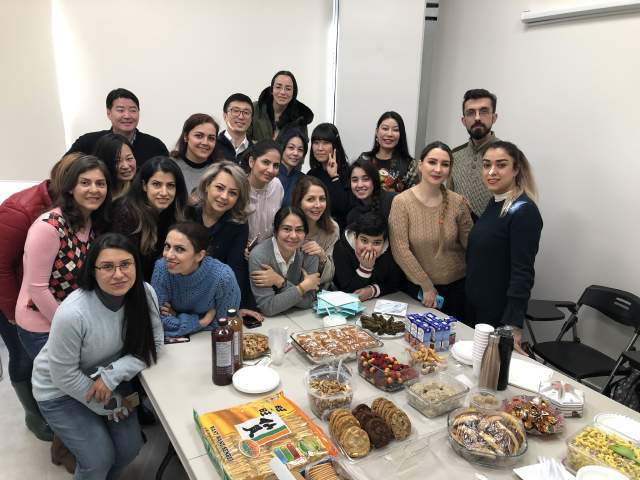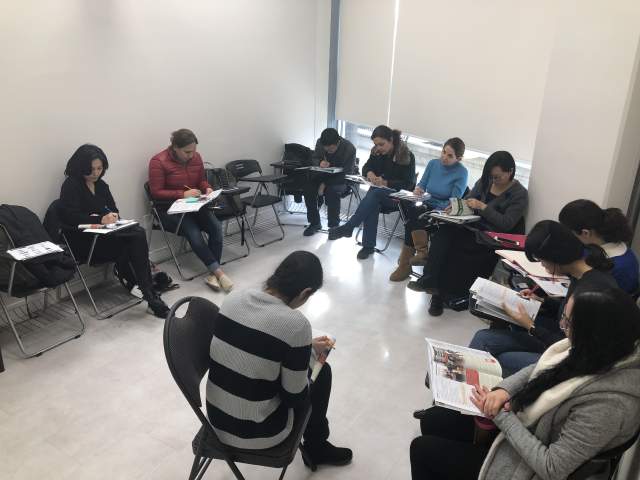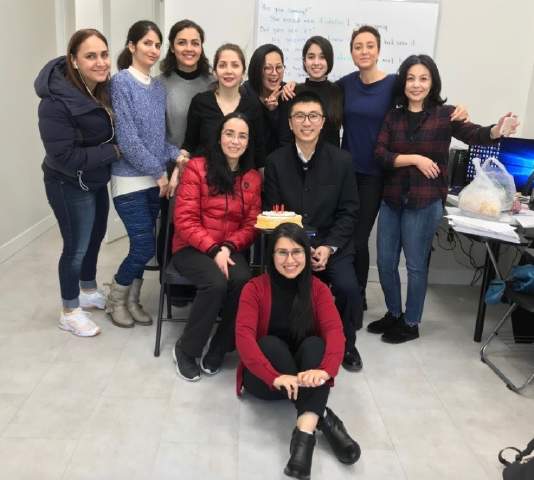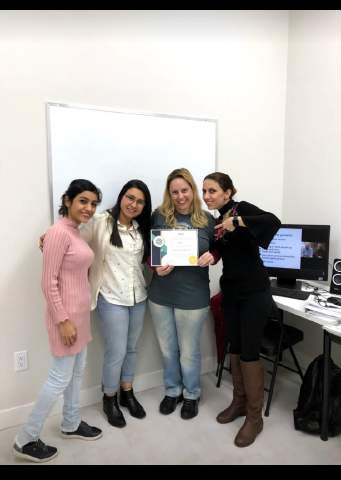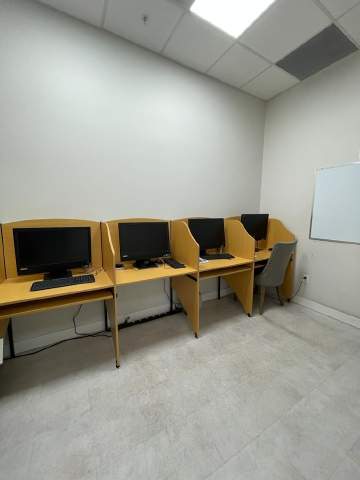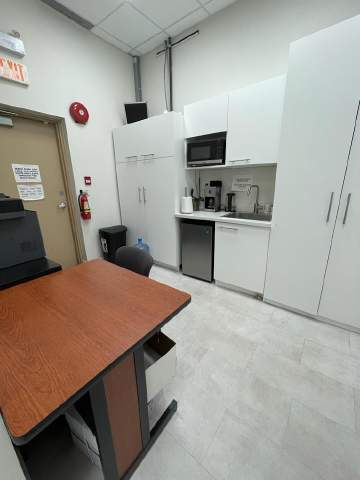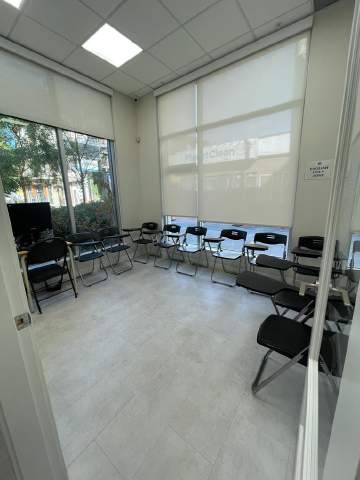Course description
ESL Program
All DEA course levels align directly with the Canadian Language Benchmarks. Topics included cover areas of interest to the student and are designed to improve fluency and build confidence. Reading, writing, speaking, and listening are integral parts of the program. The interesting course content has been designed to help students advance quickly.
Levels:
Introductory & Elementary – Basics:
Level 1: Student will build their confidence communicating in everyday situations and be able to express personal information, likes/dislikes, descriptions and identify items. Learners will interact in a simple way and can answer basic questions using familiar words. Lesson plans are personalized, engaging and fun igniting student interest.
Level 2: Students can introduce themselves to others and understand simple questions and concepts. Learners will communicate basic information using short sentences and phrases in relation to needs and experiences. Vocabulary through listening and speaking activities/exercises and comprehending simple directions.
Pre-Intermediate:
Level 3: Students will learn to communicate information and express ideas using simple sentences in relation to current needs and experiences. Learners will understand the fundamentals of basic grammar structures and verb tenses and will continue to build their vocabulary bank and develop control in communicating in informal routine situations.
Level 4: Students will continue to build their vocabulary and communicate information in relation to everyday experiences and activities with a focus on personal wants and needs. Learners will develop control in communications in informal and formal conversations. In this course, you will be able to ask and respond to questions, tell a simple story or describe situations.
Intermediate:
Level 5: Students will develop reading and writing skills to enhance communications and be able to participate in casual conversations about personal and professional interests. In addition, students will continue to demonstrate their understanding of a variety of real-life situations based on listening, speaking, reading and writing activities.
Level 6: Students will improve their English skills for academic, community and workplace settings. They will continue to build their vocabulary bank in order to communicate with more confidence and continue to incorporate previously learned structures with new ideas.
Upper-Intermediate:
Level 7: Students will progress using an increasing variety of grammatical structures and develop control of complex structures. Learners will be able to interact in relation to social routines, educational and work situations. Fuller comprehension will be realized in relation to stories, articles, ideas, and sayings.
Level 8: Students will develop the ability to interact effectively in the community and workplace. Learners will continue to develop vocabulary and grammar structures in order to communicate about a variety of everyday topics with relative ease. Learners will experiment with new and uncommon words while speaking.
Advanced:
Level 1: Emphasis is placed on refining expressive language skills. Students will gain control over a wide variety of complex grammatical structures and a range of concrete, abstract language. Idiomatic language. Nuances and subtleties will be incorporated into lesson plans in order to meet higher-level needs. Students will increase reading comprehension to comprehend the big picture and understand common mistakes.
Level 2: Proficiency is developed by comprehending complex phrases and verb tenses and mastering sentence structure. The learner will broaden their knowledge of grammar, writing and reading comprehension. Conversational strategies are introduced in order for students to understand language creativity.
Integrated Courses:
Students will develop proficiency in English in the four basic language skills: speaking, listening, reading and writing. Learners gain knowledge of new environments that are necessary for successful integration into schools and the community. Some students with limited English skills may require taking introductory courses based on the school’s curriculum. Evaluations will be made on an individual basis.
Pronunciation:
Practice and refine all aspects of pronunciation: sound, intonation, stress, and mechanics. Students will focus on accent reduction by studying proper English sound production, word and sentence-level stress and intonation. Through the means of group and pair discussions, dialogues and other activities, learners strengthen and fine-tune their English conversation and communication skills gaining functional communicability and increasing self-confidence through speech monitoring techniques. They will be encouraged to speak more spontaneously during class activities and presentations to improve oral communication.
Listening, Speaking, Pronunciation, Reading, Writing, Vocabulary, Grammar and Activities
Class schedule may change depending on availability and season.









